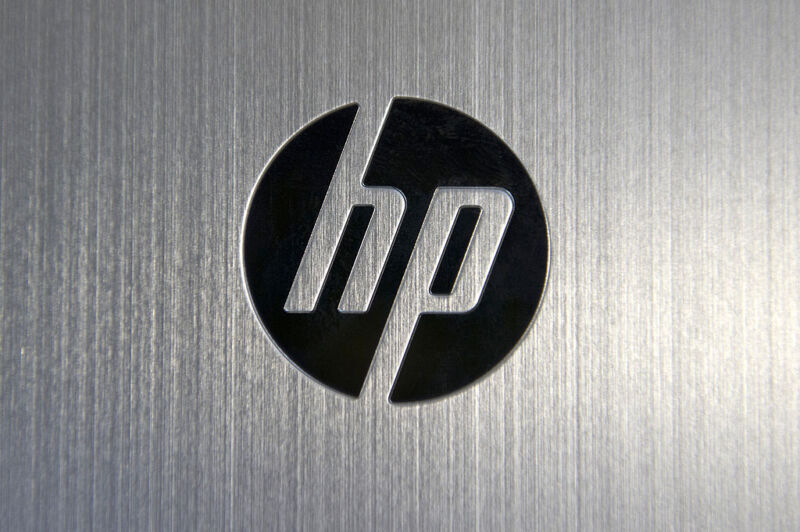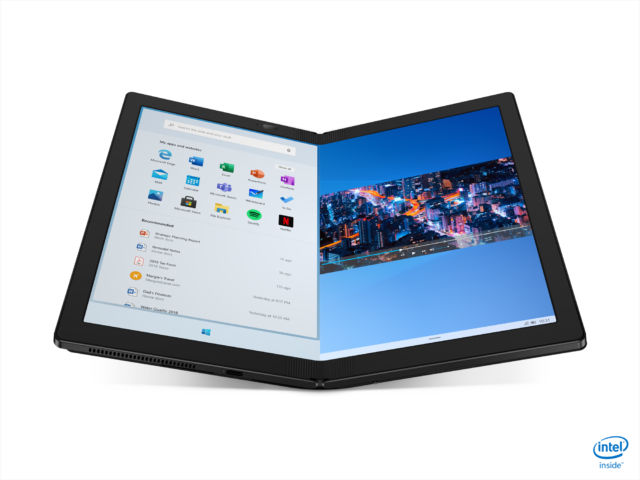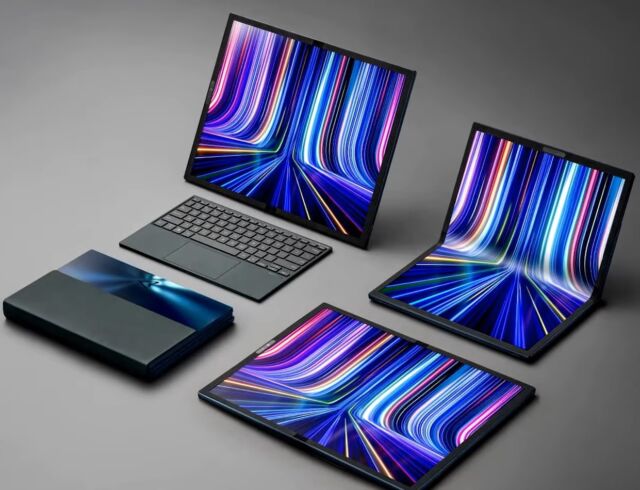
While smartphones are enjoying the trend, PCs with foldable screens have yet to go mainstream, in part because there’s only one option. But with HP expected to enter the space, “foldable OLED” may become a more common term for laptops.
Lenovo has taken a bold first step towards foldable laptops with its 13.3-inch ThinkPad X1 Fold. According to Korean electronics site TheElec, HP’s take on the foldable OLED will be larger, with LG Display’s 17-inch panel measuring 11 inches when folded. HP has yet to publicly announce or comment on the rumored PC, but a few details make this machine look at least a little plausible. On the one hand, LG Display confirmed work on a 17-inch foldable OLED laptop design in January.
 Enlarge / LG showed off a foldable OLED laptop design at CES.
Enlarge / LG showed off a foldable OLED laptop design at CES.
More recently, TheElec reported on Monday that South Korean company SK IE Technology will manufacture transparent polyimide films to cover bendable 4K OLED panels. The publication also claims that LG Display currently plans to produce “about 10,000” foldable OLED panels for HP starting in the third quarter.
If HP’s foldable becomes a reality, it will have several direct competitors. The ThinkPad X1 Fold is getting older and older. The 2020 phone currently has a 2048×1536 foldable OLED screen. It is equipped with a maximum of one performance core and four performance core Intel Core i5-L16G7, with a main frequency range of 1.4-3GHz, 8GB LPDDR4X-4267 memory and 256GB SSD storage.
advertise
 Enlarge / Lenovo ThinkPad X1 folded.
Enlarge / Lenovo ThinkPad X1 folded.
Lenovo
In January, Asus also announced the Zenbook 17 Fold OLED in mid-2022. The machine looks like a stronger competitor to the so-called HP device, with a 17.3-inch bendable OLED touchscreen, 2560×1920 resolution, and Intel’s 1.1-4.7GHz clock speed, two performance cores and eight efficiency cores i7-1250U. Asus also released a laptop with 16GB LPDDR5 RAM and a 1TB PCIe 4.0 SSD.
 Enlarge / ASUS Zenbook 17 Folding OLED.
Enlarge / ASUS Zenbook 17 Folding OLED.
Asus hasn’t confirmed it, but TheElec reported Wednesday that Asus’ foldable machines will also use polyimide films as well as BOE’s OLED panels.
In addition to image quality, productivity performance, price and durability, features that improve the usability of the new design, such as Asus’ detachable physical keyboard, will be a key differentiator for audiophiles.
Although Lenovo’s ThinkPad X1 Fold came out two years ago, we’ve yet to see the release of a direct competitor. But don’t be surprised to see more laptop-sized OLED screens curved in half and flanked by ports on the sides if another of the world’s top three PC makers enters the space.
Ars Technica may receive compensation for sales through the link on this post through an affiliate program.










